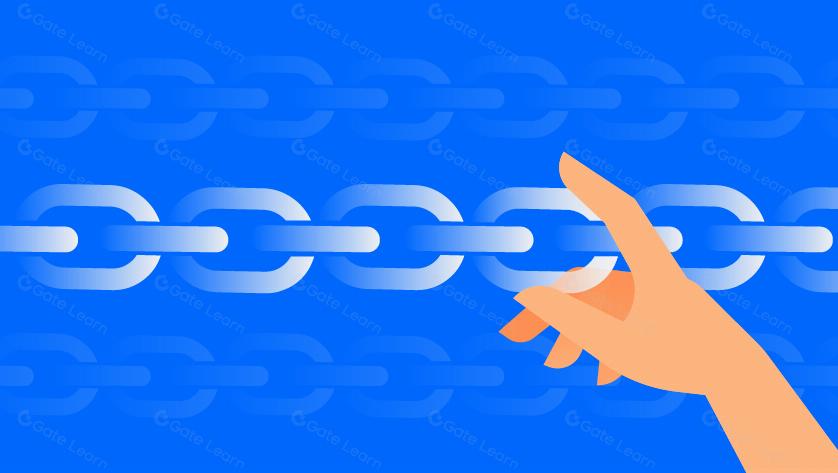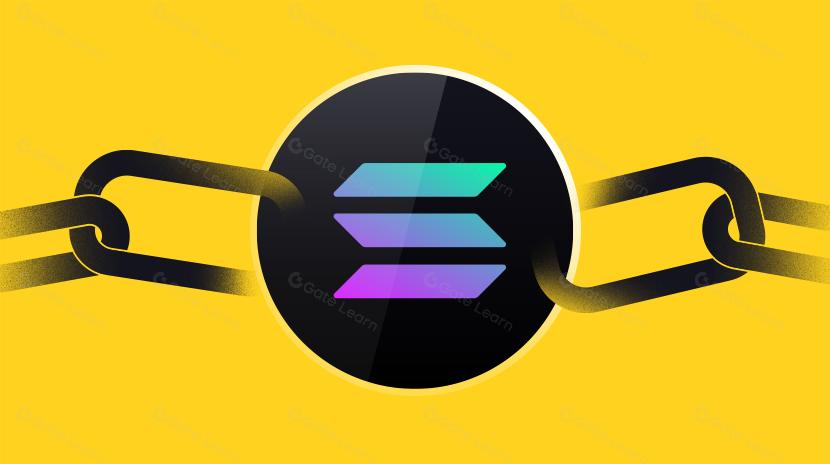Define Epoch

What Is an Epoch in Blockchain?
An epoch is a discrete time interval within blockchain operations, similar to a class period or work shift, during which the network settles rewards and updates states according to protocol rules. Segmenting blockchain activities into epochs facilitates bulk processing of rewards, delegation handovers, and state checkpointing.
In most public blockchains, an epoch is not a single block but rather a sequence of consecutive time slots or blocks. It serves as a unified cadence for reward distribution, validator rotation, and checkpoint marking.
What Are the Main Functions of an Epoch in Blockchain?
Epochs play a central role in several system operations:
- Reward Settlement: Staking (locking tokens to support network security and earn returns) is usually calculated and distributed by epoch, allowing for efficient batch processing.
- Validator Rotation: Validators (nodes responsible for block proposal and transaction verification) are added or updated at epoch boundaries, helping mitigate centralization risks.
- Checkpoints and Finality: Checkpoints mark specific chain states, while finality means a transaction is irreversible. Many networks advance these processes on an epoch-by-epoch basis.
- Random Seed Refresh & Governance Windows: Some protocols use epoch transitions to update random seeds or open/close voting and parameter adjustment periods.
For example, if you stake during the current epoch, your rewards may be settled in the next or subsequent epochs. Validator sets are also frequently updated at epoch transitions to enhance fairness and security.
How Are Epochs Related to Blocks and Slots?
An epoch typically consists of multiple slots or blocks. A slot can be thought of as a time window for block production—during each slot, a designated validator has the right to propose a block; a block contains the transactions packaged during that slot.
Thus, an epoch equals a series of consecutive slots or blocks. This grouping allows the blockchain to generate checkpoints at the end of each epoch or ensure stronger finality after several epochs.
Take Ethereum as an example: an epoch is made up of a fixed number of slots. The system advances time by slot and settles rewards or updates states by epoch. This hierarchical structure allows both rapid block production (seconds) and robust security confirmation intervals (minutes) to coexist.
How Are Epochs Configured in Ethereum?
As of 2025, in Ethereum’s Proof-of-Stake (PoS) consensus, one epoch comprises 32 slots, with each slot lasting approximately 12 seconds—making an epoch about 6.4 minutes (Source: Ethereum Beacon Chain specification, 2025).
Ethereum generates checkpoints at every epoch and typically reaches finality after several epochs. Under normal network conditions, about two epochs are enough for strong irreversibility, though actual results depend on client and network health.
This means:
- When assessing transaction security, consider not just “included in block” but also “number of epochs elapsed.”
- For staking, reward calculations and validator updates are closely tied to epoch timing; withdrawals and changes may also span multiple epochs.
How Are Epochs Defined in Solana, NEAR, and Filecoin?
Different public chains have distinct configurations for epoch length and structure, which may be adjusted over time:
- Solana: An epoch consists of a fixed number of slots; each slot typically lasts hundreds of milliseconds. A full epoch usually spans around 2 days, with variability based on network parameters and performance (Source: Solana documentation & network stats, 2025).
- NEAR: Epochs last about 12 hours, primarily used for validator set updates and reward settlement (Source: NEAR protocol resources, 2025).
- Filecoin: The chain counts by “height,” with each epoch roughly 30 seconds. Epochs govern proof windows and scheduling (Source: Filecoin specification, 2025).
These differences impact practical usage: Ethereum confirmations operate on a minute-scale rhythm; Solana updates leader schedules and staking weights in longer epochs; Filecoin orchestrates storage and proofs around finely timed 30-second epochs.
How to Plan Staking and Withdrawals Using Epochs
Epochs are useful for estimating when returns will be credited or redeemed, minimizing operational friction:
Step 1: Identify your blockchain’s epoch length and settlement rules. Check official documentation or explorer pages to see when rewards are calculated and paid out per epoch.
Step 2: When selecting validators, monitor commission rates and slashing risks. Slashing penalizes validators for misbehavior by confiscating tokens; rotations at epoch boundaries can affect your yield and safety.
Step 3: Mark important epochs in your wallet or platform interface. For instance, Gate’s staking or finance pages typically specify reward settlement and redemption cycles; use product info alongside on-chain epoch cadence for optimal planning.
Step 4: Set reminders and allow for buffer epochs. If planning to withdraw after a given epoch, reserve extra epochs to account for network congestion or validator changes—missing the window could lead to delays.
Security tip: Locking funds across multiple epochs exposes you to price fluctuation risk. Choose validators carefully—slashing can affect both principal and earnings. Platform settlement cycles may differ from on-chain epochs; always review product terms.
How Do Epochs Affect Transaction Confirmation and Security?
Epochs influence how quickly transactions reach “secure” status. Most networks produce checkpoints at each epoch and provide stronger finality guarantees after several epochs; finality means transactions are irreversible—a critical consideration for large transfers and institutional settlements.
On Ethereum, counting “epochs passed” is more robust than simply checking “block included.” On high-throughput networks like Solana, fast confirmation coexists with longer epochs; applications may be usable within seconds, but strong finality still requires multiple consensus rounds.
For users:
- For major transactions, waiting for additional epochs reduces rollback risk.
- For cross-chain or high-value operations, follow your app or custodian’s recommended confirmation guidelines—not just block count.
How to View Epoch Information in Wallets and Explorers
Step 1: Choose the right explorer. Ethereum’s Beacon Chain explorers (like beaconcha.in) display current epoch, slot, and checkpoint data; Solana explorers (like Solscan) show epoch progress and staking weights; Filecoin explorers (like Filfox or Filscout) display chain height in epochs.
Step 2: Understand key fields. Pay attention to “current epoch number,” “remaining slots,” and “next settlement/rotation time”—these help you plan transactions and staking activities.
Step 3: Link your wallet or platform. Staking interfaces often highlight epoch-related reward and redemption rules; Gate’s product pages show settlement cycles, payout frequency, and redemption wait times—coordinate this with on-chain epoch info for best results.
Step 4: Record critical timings. Set reminders for high-value actions so you can execute steps before or after expected epoch changes—this minimizes delays and price risk.
Epoch Summary & Next Steps
Epochs segment blockchain operations into time-based intervals that regulate reward settlement, validator rotation, checkpoints, and finality. Understanding the structure—“epochs consist of slots or blocks”—helps you gauge when transactions are secure, when rewards arrive, and when withdrawals will clear smoothly. Epoch lengths vary widely across chains and may change with upgrades; always consult docs and explorer pages before acting, then combine platform rules for best results. Consider building an “epoch cheat sheet” for your preferred chains—set reminders and buffers around key epochs for large trades or staking plans to boost safety and user experience.
FAQ
I’m New to Blockchain—What Is an Epoch Exactly?
An epoch is a time unit used by blockchain networks to organize and manage operations. Simply put, an epoch contains multiple blocks; within each cycle the network coordinates validator consensus—much like a factory shift completing specific tasks. Different blockchains define epoch length differently; understanding it helps clarify blockchain time logic.
I Always Mix Up Epochs with Blocks—What’s Their Relationship?
A block is a single data packet; an epoch is a collection of blocks. If you imagine blockchain as a book, blocks are individual pages while epochs are entire chapters. Each epoch contains a set number of blocks (for example, Ethereum’s epoch = 32 blocks), with validator status updates occurring at the end of each epoch. Grasping this hierarchy helps track transaction confirmation progress.
As a Staker, Why Should I Care About Epoch Cycles?
Staking reward settlement, validator state changes, and withdrawal timing are all calculated by epochs. Stakers must complete actions (such as requesting withdrawals) within specific epochs—missing the window could mean waiting for the next cycle. When staking via Gate, knowing the network’s epoch cycle helps you plan fund movement precisely and avoid unnecessary delays.
Why Do Different Blockchains Define Epochs So Differently?
Epoch design depends on each chain’s consensus mechanism and performance goals. Ethereum’s epoch lasts about 12.8 minutes; Solana’s can be 2–3 days—reflecting their different priorities in security, block speed, and validator coordination costs. Shorter epochs mean faster network responses but higher coordination overhead; longer epochs build more security but reduce flexibility.
How Can I See the Current Epoch Number in Blockchain Explorers?
On explorers (like Etherscan’s Validator page or Ethereum Beacon Chain browsers), you can view current epoch numbers and progress. Gate wallet’s staking module also displays relevant info. Real-time epoch data helps confirm transaction status or staking progress—especially useful when waiting for withdrawal confirmations. Bookmark your chain’s explorer for quick access at any time.
Related Articles

The Future of Cross-Chain Bridges: Full-Chain Interoperability Becomes Inevitable, Liquidity Bridges Will Decline

Solana Need L2s And Appchains?
